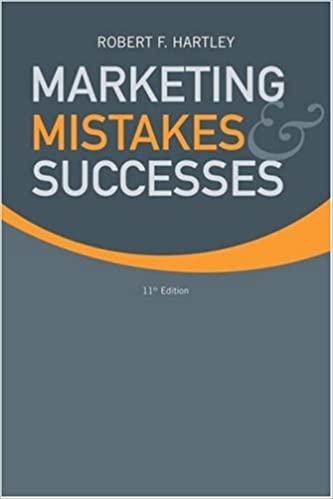Question
Please read the following article and respond to the following: Do you agree or disagree with the authors? Please respond with your reasons for doing
Please read the following article and respond to the following:
Do you agree or disagree with the authors? Please respond with your reasons for doing so.
What did you learn from it? Any other comments?
You must post your initial response ASAP and subsequently add at least two comments on other students' responses by Saturday 11:59 PM
The Economist explains
What is Libra?
Facebook’s digital currency could become one of the world’s biggest financial entities
The Economist explains (Links to an external site.)
Jul 12th, 2019
(Links to an external site.)
(Links to an external site.)
(Links to an external site.)
ANYONE WHO has watched the price of bitcoin bucking and rearing in recent years—or seen Facebook attacked for its handling of private data—might have been surprised to learn that the social-media giant is releasing its own digital currency. But such is Libra. Facebook will launch its currency sometime in the first half of next year. If all goes according to plan, Libra will be bought, sold, held, sent, and received within the firm’s apps, Messenger and WhatsApp, and also rival ones. A tap on a smartphone will make money change hands almost instantaneously, even if the sender and receiver are on different sides of the planet.
Libra is, in effect, an attempt to undercut existing payment services by re-inventing and improving bitcoin ten years after its launch. Whereas Bitcoin transactions may take minutes to confirm and can cost several dollars, Libra should move within seconds for negligible fees. Whereas bitcoin’s price is extremely volatile, Libra’s swings should be minimal as it will be backed by a basket of currencies. And whereas a transaction using bitcoin needs more than 1,000 kWh of computing energy, Libra transactions should consume no more energy than credit-card ones.
Libra will be created only when users buy coins with real money. These inflows will form the reserve that will back the currency. Local regulators will be able to keep tabs on Libra, which will not yield interest. The providers of “wallets”, the software-cum-services that allow users to send and receive the currency, will have to comply with national rules, for instance, those against money laundering.
To assuage those worried about letting Facebook into their financial affairs, the firm will decentralize decision-making about Libra. Its institutional heart is an association made up of a broad range of organizations, such as financial firms and non-profit groups. Their main task is to oversee the blockchain, a database that tracks who owns which Libra coin. On the currency’s launch, this association is supposed to have 100 members, each of which can operate one of the blockchain nodes.
The currency will be offered to 2.4 bn Facebook users, but to function effectively Libra also needs to be accepted by many businesses. The association will run “incentive programs”, essentially subsidies to get people to use and hold the new currency. They will be financed by the fees its members have to pay for a seat at the table: $10 m each for a total of $1 bn. Facebook will not be the only provider of wallets. But the association will have to ensure that Calibra, the separate subsidiary that Facebook has created to offer Libra payments, should not have an unfair advantage over other firms. Facebook itself is likely to develop a suite of financial services, much as WeChat and Alibaba, two Chinese internet giants, have done in China.
Much can go wrong. The working prototype has yet to be tested. Facebook must prove that it truly is willing to give up control. Concerns about fair competition between Libra and other crypto-projects will persist. And any success could also bring problems. Were every Western depositor to move a tenth of their bank savings into Libras, its reserve fund would be worth over $2 trillion—nearly twice Apple’s market cap. If all Facebook’s users adopt Libra to shop and transfer money, it could become one of the world’s biggest financial entities, reducing governments’ economic sovereignty. As a result governments, particularly those that print money to finance their budgets, might be tempted to block it. Facebook’s impact on democracy has not been wholly positive. It is not clear whether Libra’s impact on the financial system should be feared or welcomed.
Step by Step Solution
3.55 Rating (165 Votes )
There are 3 Steps involved in it
Step: 1
I agree with the authors that there are many potential risks associated with Facebook s Lib ra curre...
Get Instant Access to Expert-Tailored Solutions
See step-by-step solutions with expert insights and AI powered tools for academic success
Step: 2

Step: 3

Ace Your Homework with AI
Get the answers you need in no time with our AI-driven, step-by-step assistance
Get Started


